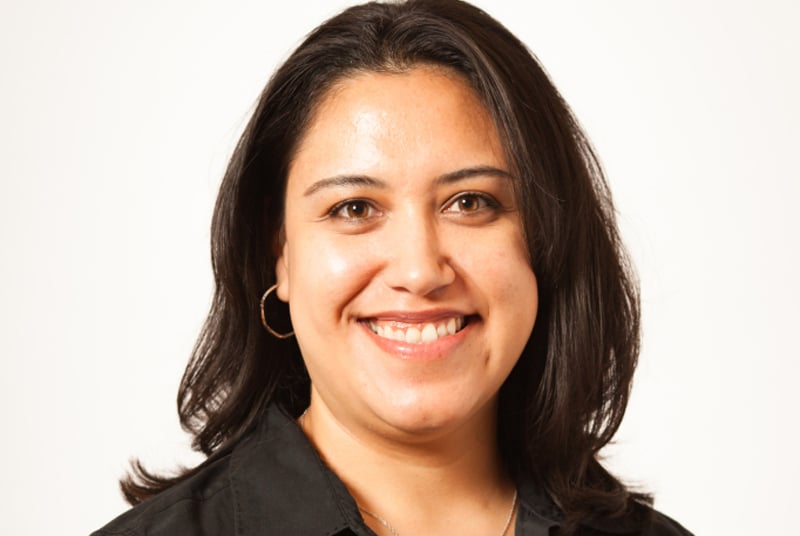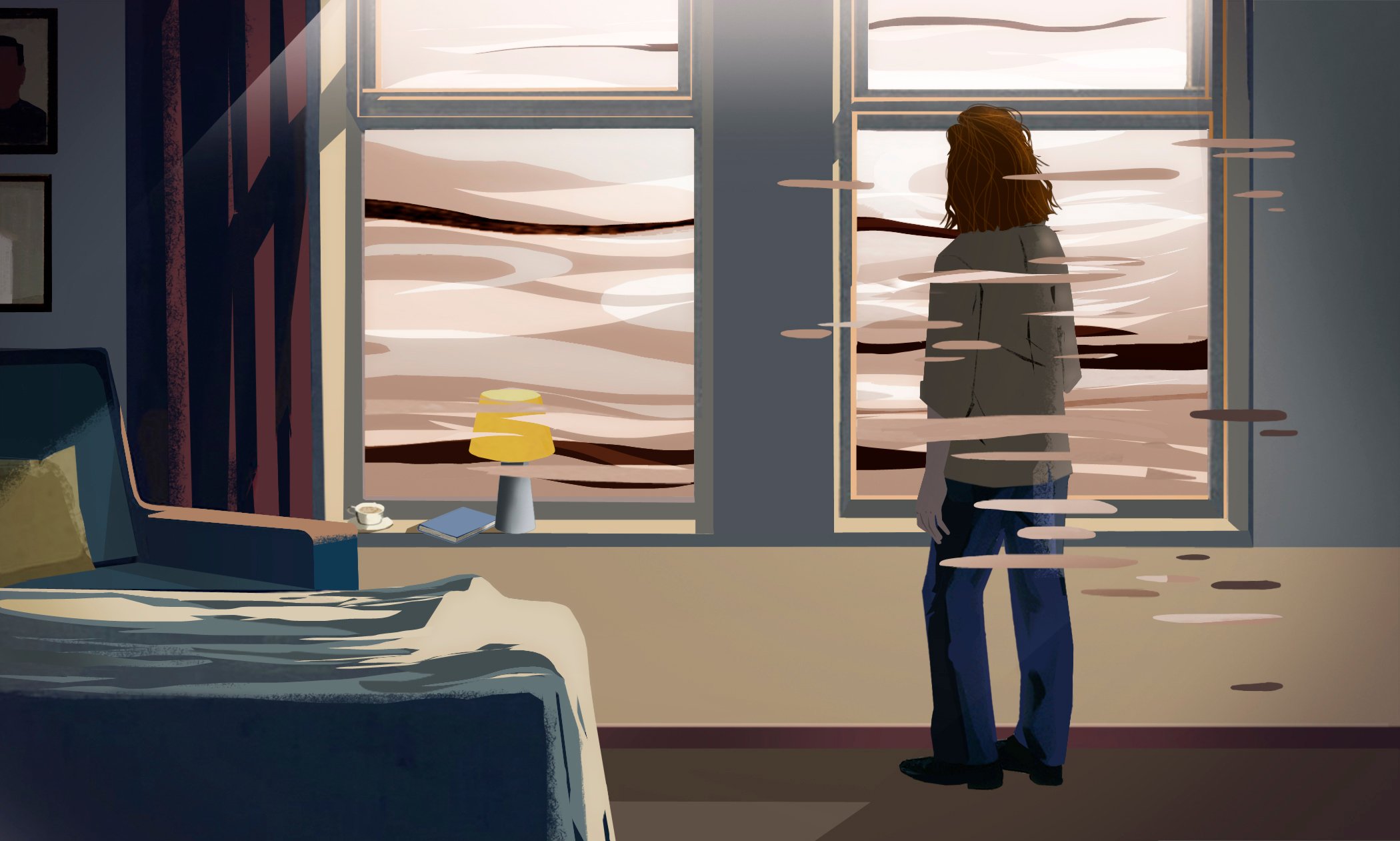
“Possibilities” by Yliana Gonzalez, a Texas Observer Short Story Contest Finalist
When Elizabeth McCracken signed on to judge the 2014 Texas Observer short story contest, she told us she was looking for fiction that offers what William Boyd labeled “complexity of afterthought.”
“When I finish a short story,” McCracken said, “I want to feel as though my brain has been struck like a gong.”
Today we present the first of four brain-ringing contest finalists, Yliana Gonzalez’s “Possibilities,” which imagines two conceivable outcomes of an illegal Reynosa-to-Hidalgo border crossing.
Look for our other three finalists to appear in this space throughout September, leading up to the publication of our winning story in the Observer’s annual October Books Issue.
Possibilities
by Yliana Gonzalez
By the time the group reached the bridge in Hidalgo, their drunkenness had worn off, some corner of their sobriety recognizing it was crucial to assume control. All four of them were crammed into the front seat of Ruben’s Ford Ranger, Ruben at the wheel with Selina beside him, Eduardo at the window next to Vicky. It was 3 a.m., but the border was congested with cars heading back to the U.S., just as Selina had predicted.
“Just say yes when he asks if we’re citizens,” Selina said. “And if he asks you directly, did you practice?”
“American citizen,” Eduardo said.
“That sounded a little like A-mar-ican, not American.”
“A-mer-ican,” Vicky said, and Eduardo repeated the word.
“Stop rehearsing, babe. You’re just making them nervous,” Ruben said, his hand on Selina’s thigh.
The signal light flashed green and Ruben drove up to the tollbooth. An immigration official waved a flashlight into the truck, inspecting the floor and any dark crevices.
“Hello, Officer,” Ruben said.
“You kids been partying in Mexico tonight?” the officer asked, noticing the girls’ sparkly outfits.
“Just a little dancing,” Selina said in her most dutiful voice. She regretted not telling Vicky to flirt a little.
“Y’all American citizens?”
Vicky and Eduardo might have nodded, as Selina had instructed them to do. It might have been enough for the immigration officer, who had seen nearly 30 cars before them with dressed-up youngsters returning to the Valley from the club scene in Reynosa. Maybe he had a daughter or son their age who also enjoyed partying in Mexico on the weekends, and so he might have said, “OK, you kids get home safe.”
They might not have said a word to each other until they passed every building that looked governmental, until they were engulfed by the darkness of the night and then felt safe.
Then, because Selina wanted to break the tension, she might have burst out singing: “Life is all right in America!” The other three might have erupted in laughter, nervous hysterics. Even Eduardo, who didn’t understand the reference.
When the laughing subsided, Eduardo might have covered his head in his hands and sighed, then started crying. Vicky might have climbed onto his lap and they might have held each other. Selina might have leaned on Ruben’s shoulder and he might have kissed the top of her head as he drove them all to the hotel room they had rented for the night in McAllen.
Once there, Vicky might have fallen asleep in Eduardo’s arms after admitting she hadn’t slept well in days. Eduardo might have stroked her face with his fingers while trying to ignore the breathy moans and mattress squeaks coming from the other bed.
They might have flown to Austin the following day, avoiding the drive because of the immigration checkpoint at Falfurrias. Eduardo might have moved back in with his friend Sami, with whom he had lived months prior, before Eduardo had his tourist visa revoked at the border after an immigration official found work stubs in his bag, in his name, with a Social Security number that didn’t belong to him, couldn’t possibly belong to him under a tourist visa. He might have resumed his job as a parking valet, and then, partly because he couldn’t ignore the part of him that yearned for education, and partly because he had determined that the English he had learned at the University of Guadalajara was insufficient, he might have taken up English night classes.
After her college graduation, Vicky might have taken Eduardo to Dallas to introduce him to her parents, with whom he might have bonded over conversations about Mexican literature, Fuentes and Poniatowska, Mexican politics and the significance of the end of the PRI party’s reign in the recent 2000 presidential election. Vicky’s mother might have revealed that she had once spent a weekend in Guadalajara with a boyfriend, years before she met Vicky’s father.
They might not have said a word to each other until they passed every building that looked governmental, until they were engulfed by the darkness of the night and then felt safe.
Eduardo, not wanting to defraud Vicky’s parents, might have felt obligated to reveal his status in the country.
“But I don’t understand,” Vicky’s father might have answered. “You were a university student in Mexico. Why did you leave there to come here?” He might have admired Eduardo’s explanation that he had obtained a tourist visa so he could visit a friend, but that he had ultimately decided he was dissatisfied with a life of little stimulation in Mexico and had stayed to discover the promise of America he had always heard about, and then he’d met Vicky.
“Yes, a country’s promise is always its women,” Vicky’s father might have joked.
Vicky might have gone on to attend medical school at Baylor College of Medicine and Eduardo might have followed her to Houston. The conversation with Vicky’s parents might have convinced Eduardo to propose over the Christmas holidays. Vicky might have leapt and bounced across their tiny apartment, screaming, “Yes! Yes! Yes!” then called Selina in Austin to share the news.
They might have obtained a fiancé visa and married in Guadalajara so that Eduardo’s family could attend. Selina might have been the maid of honor and surprised the couple with a slide show that contained photos of their dating history, including pictures of the night at Spiro’s when they met, and that night in Reynosa in February 2001 at Frida’s nightclub in which Eduardo and Vicky looked completely drunk. Ruben might have been Selina’s date.
Years later, when Selina married Ruben, Vicky might have been Selina’s maid of honor. She might have laughed as she watched her overjoyed best friend dance until her feet blistered, until she removed the cowboy boots she’d worn with her wedding dress. At the end of the night, Vicky might have leaned her head on Eduardo’s shoulder, and he might have kissed the top of his wife’s head as Ruben serenaded Selina with their favorite mariachi song.
Vicky and Eduardo might have nodded, as Selina had instructed them to do. Eduardo might have winced as he nodded, or nodded half-heartedly. The immigration officer might have caught Eduardo’s hesitation. He might have aimed the flashlight at Eduardo’s face and asked, “How ’bout you, young man?”
Eduardo might not have understood the question, too agitated to conduct the translation in his head. He might have nodded again.
“‘Yes what?” the officer might have asked.
“Yes, he’s an American citizen,” Vicky might have said, her voice shaky.
“I didn’t ask you, ma’am.”
“A-mar-ican citizen,” Eduardo might have said, perhaps too loudly, trying to rectify what had already gone wrong.
“All right, I’m gonna need to see some identification from all of you.”
Ruben, Selina and Vicky might have exchanged scared glances and Vicky might have told Eduardo in Spanish that he needed to show some ID. In Spanish, Eduardo might have asked her what he should do. Selina might have nudged Vicky, attempted to shush them weakly.
“Don’t you have any identification, young man?” the officer might have asked in Spanish. “We speak Español around here, don’t you know?”
Eduardo might have considered a lie, but not wanting to get the others into trouble, he might have admitted that he didn’t have any paperwork. The four of them might have been asked to abandon the vehicle and escorted to a holding center where they were separated into four rooms. Vicky might have broken down when the officer told her that the penalty for aiding in alien smuggling was a fine and up to 10 years in federal prison. She might have revealed that it had been Selina’s idea to smuggle Eduardo across. Selina might have immediately asked for an attorney, cursing the fact that her mother would be unable to afford a private one. She might have paced in the small room, her arms crossed tightly against her chest, and when an officer told her that Vicky had identified her as the mastermind of the plan, she might have called him a liar, refusing to believe her friend would betray her. Ruben might have held out the longest, refusing to say anything at all until an officer told him that Vicky had confessed and that Selina was corroborating the story. He might have said he had only done it for Selina, that he should have cut her out of his life long ago. He might have called her vulgar names and asked to call his parents.
Upon learning that Eduardo had been issued a tourist visa in the past, and that it had been revoked, the immigration officials might have told him that they would have to send him to the Port Isabel Service Processing Center so that he could go through the system and receive a deportation order.
“What is that place?” Eduardo might have asked.
“They call it the corralón,” he might have been told.
An image of a horde of men being herded into a windowless building might have flashed through Eduardo’s mind.
Another officer might have told him, “It’s an immigration jail.”
“I don’t need to go to jail,” he might have insisted. “I can just go back home.”
“Can’t do that,” the officer might have said. “You made a false claim to U.S. citizenship and you’ve been arrested at a port of entry. We gotta process you through the proper channels.”
Ruben, Selina and Vicky might have seen each other again in the lobby when the officers allowed them to make phone calls to their parents.
“Did you tell them it was all my idea?” Selina might have shouted at Vicky.
“It was,” Vicky might have said, her tone flat and cold. She might have been trying her best to maintain her composure.
“You bitch.” Selina’s voice might have shaken. “I did it all for you.”
Their eyes might have met, and Vicky might have felt the buildup of everything she’d been holding back making its way up her chest, forcing its way out of her.
Vicky might have tried to explain, but her words might have been no match for Selina’s anger, her continued shouting and cursing. It might have occurred to Vicky then that Selina would have no way out, no affluent parents to pay her bail. Vicky might have vomited in the nearest bin.
Ruben might have sat on a folding chair, bent over, his head in his hands, until he unraveled and started crying. Selina might have called his name softly. He might have turned to her and heard her say in a low voice, “I’m so sorry.” Ruben might have wiped his nose on the back of his hand, leaned back on the chair, and grown quiet.
The officers might have handcuffed the three of them to escort them to county jail for the remainder of the weekend, until they could be arraigned before a federal judge. As they left the building, they might have walked by Eduardo’s holding room. He might have seen them from the window and called Vicky’s name. She might have turned her head and caught his horrified glance at the handcuffs on her wrists. He might have seen her face contort in pain. He might have called her name again, but she might have turned away.
Vicky’s parents might have paid her bail first thing on Monday and she might have been released the very next day. Her seasoned criminal attorney might have gotten her off on a five-year probation sentence and a $2,500 fine. Vicky might have pleaded with her parents to help Selina and Ruben, but her attorney might have told her that the only defense she had was to claim it had all been the others’ idea. Ruben might have gotten away with similar luck. His family was well connected in the Valley, and his parents might have called in favors to a couple of judges. Selina might have done two years’ time in Beaumont before being released on five-year probation. She might have ignored Vicky’s letters and calls until Vicky gave up. She might have found a job at a retail store in the Valley, and one day Ruben might have entered that store with his wife; Selina might have wanted to say something to him, but Ruben might have pretended not to know her.
Eduardo might have been held a couple more hours until a Border Patrol vehicle arrived to take prisoners to the Port Isabel Service Processing Center. He might have been shuffled into the van with other arrested immigrants. He might have studied the other men in the van, wondering what he had in common with them other than a homeland. From inside the van, Eduardo might have been unable to see that the entry into the prison compound was marked by two pillars and a guard at the gate. Once inside the jail, he might have been given a navy-blue uniform to wear.
“No, that’s not correct,” an immigration officer might have said, giving him a tangerine-colored uniform to wear instead.
“What’s the difference?” Eduardo might have asked out of curiosity.
“Blue is for first-time offenders,” he might have been told. “You’re a repeat offender, so you get orange.”
Eduardo might have balked at the idea of himself as a repeat offender. He might have wondered how he had strayed so far from his days in psychology classes in Guadalajara, if there was something wrong with him for being so dissatisfied in his soul, for wanting a life of exploration.
He might have walked into the jail dormitory where he would sleep for the next two weeks before being deported to Guadalajara, and he might have realized that he would never see Vicky again. He might have remembered the bride outside the church in the plaza in Reynosa earlier that night while he had waited for the others to pick him up, and he might have felt inconsolable as the thought struck: Vicky would not be his that way. She might live through that experience, but it would not be with him. The image of her face, her eyes defined and highlighted by her dark lashes and thick eyebrows, might have inundated his memory and he might have felt thankful that he had always studied her features to learn them by heart. He might have thought: I must have known this day would come.
To support journalism like this, donate to the Texas Observer.

